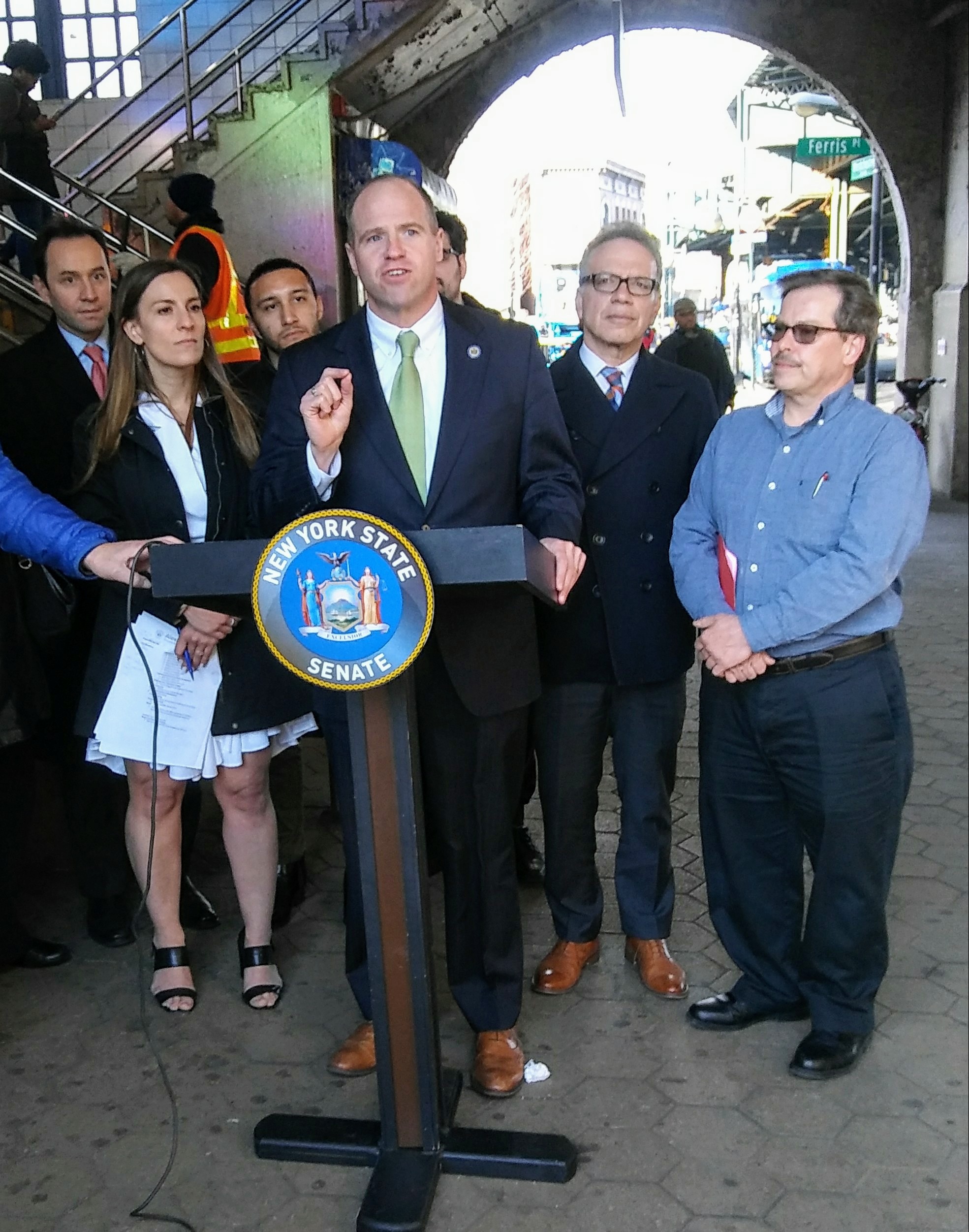Geoffrey S. Berman, the United States Attorney for the Southern District of New York, announced that eight defendants have been sentenced in connection with their participation in a scheme to defraud victims – many of whom were elderly – by soliciting payments over the telephone. ARASH KETABCHI, a/k/a “Zach Peterson,” RAYMOND QUILES, CHRISTOPHER WILSON, a/k/a “Eric Fields,” JACK KAVNER, a/k/a “Bob Wiley,” a/k/a “Phil Powers,” JOSEPH McGOWAN, and ANTHONY MEDEIROS pled guilty in 2018. ANDREW OWIMRIN, a/k/a “Andrew Owens,” a/k/a “Jonathan Stewart,” and SHAHRAM KETABCHI, a/k/a “Steve Ketabchi,” were convicted following a 12-day trial before United States District Judge Sidney H. Stein.
U.S. Attorney Geoffrey S. Berman said: “Motivated by greed and the possibility of a quick payday, these defendants aggressively targeted the elderly and other vulnerable victims by convincing them to invest their money in various businesses. In reality, these so-called opportunities were just fraudulent schemes to steal victims’ money. Now, they have all been sentenced to prison.”
According to the allegations in the complaint and indictments filed in connection with this case, other filings in Manhattan federal court, and evidence presented at the trial of OWIMRIN and SHAHRAM KETABCHI:
Beginning in October 2013 through March 2017, ARASH KETABCHI, WILSON, KAVNER, McGOWAN, and others operated a group of telemarketing companies (the “Telemarketing Companies”) that engaged in a fraudulent scheme (the “Telemarketing Scheme”), by which they promised to earn victims (the “Victims”) money in exchange for particular Victims making an initial cash “investment” in business development, website design, grant applications, or tax preparation services. Many Victims, the majority of whom are over 70 years old, “invested” thousands of dollars with the Telemarketing Companies, but did not earn any of the promised returns. When Victims of the Telemarketing Scheme sought refunds, or fought credit card charges, the Telemarketing Companies provided explanations and documentation to the credit card companies falsely representing that the Victims had received the promised services. QUILES operated a company that provided so-called “fulfillment” services for the Telemarketing Companies, whereby QUILES’s company would send nominal items, such as boilerplate pamphlets, to Victims in order to help the Telemarketing Companies falsely demonstrate to credit card companies that they had provided services to the Victims. OWIMRIN and MEDEIROS worked as sales representatives for the Telemarketing Companies. SHAHRAM KETABCHI was responsible for, among other things, the submission of documents to the credit card companies in order to challenge the Victims’ attempts to recover their funds.
Five other individuals have pled guilty in connection with this case, and await sentencing:
Defendant Name
|
Companies
|
Count(s) of Conviction
|
William Sinclair
|
Olive Branch Marketing,
Paramount Business Solutions
|
Wire Fraud and Conspiracy to Commit Wire Fraud
(18 U.S.C. §§ 1343, 1349)
Conspiracy to Commit Money Laundering
(18 U.S.C. § 1956(h))
|
Michael Finocchiaro
|
Olive Branch Marketing,
Paramount Business Solutions
|
Wire Fraud and Conspiracy to Commit Wire Fraud
(18 U.S.C. §§ 1343, 1349)
Conspiracy to Commit Money Laundering
(18 U.S.C. § 1956(h))
Narcotics Conspiracy
(21 U.S.C. § 846)
|
Daniel Quirk
|
Carlyle Management Group,
Vanguard Business Solutions
|
Wire Fraud and Conspiracy to Commit Wire Fraud
(18 U.S.C. §§ 1343, 1349)
Conspiracy to Commit Money Laundering
(18 U.S.C. § 1956(h))
Narcotics Conspiracy
(21 U.S.C. § 846)
|
Peter DiQuarto
|
Olive Branch Marketing,
Carlyle Management Group,
Vanguard Business Solutions.
A1 Business Consultants
|
Wire Fraud and Conspiracy to Commit Wire Fraud
(18 U.S.C. §§ 1343, 1349)
Conspiracy to Commit Money Laundering
(18 U.S.C. § 1956(h))
Narcotics Conspiracy
(21 U.S.C. § 846)
|
Brooke Marcus
|
First Trend,
Tri-Star,
Elite Business Services
|
Conspiracy to Commit Wire Fraud
(18 U.S.C. § 1349)
|
ARASH KETABCHI, 45, of Wayne, New Jersey, was sentenced by Judge Stein on March 27, 2019, to 87 months in prison and three years of supervised release, and ordered to forfeit $1,059,803.84 and to pay $563,427.99 in restitution.
RAYMOND QUILES, 41, of Old Bridge, New Jersey, was sentenced by Judge Stein on March 27, 2019, to 366 days in prison and three years of supervised release, ordered to perform 480 hours of community service, and to forfeit $542,673.30.
CHRISTOPHER WILSON, 33, of Teaneck, New Jersey, was sentenced by Judge Stein on April 3, 2019, to 78 months in prison and three years of supervised release, and ordered to forfeit $485,818.84 and to pay $397,850.80 in restitution.
JACK KAVNER, 32, of West New York, New Jersey, was sentenced by Judge Stein on April 3, 2019, to 51 months in prison and three years of supervised release, and ordered to forfeit $150,000 and to pay $1,705,586.05 in restitution.
JOSEPH McGOWAN, 32, of Port Chester, New York, was sentenced by Judge Stein on April 3, 2019, to 72 months in prison and three years of supervised release, and ordered to forfeit $1,763,582.05 and to pay $1,705,586.05 in restitution.
ANDREW OWIMRIN, 29, of Montvale, New Jersey, was sentenced by Judge Stein on March 27, 2019, to 52 months in prison and three years of supervised release, and ordered to forfeit $100,000.
SHAHRAM KETABCHI, 48, of Rancho Mission Viejo, California, was sentenced by Judge Stein on March 28, 2019, to four months in prison, three years of supervised release, including six months of home confinement, and 480 hours of community service. SHAHRAM KETABCHI was also ordered to forfeit $30,825 and to pay $563,427.99 in restitution.
ANTHONY MEDEIROS, 38, of Bloomfield, New Jersey, was sentenced by U.S. District Court Judge Nelson S. Román on September 11, 2018, to 66 months in prison and three years of supervised release.
Mr. Berman praised the outstanding investigative work of the Department of Homeland Security, Homeland Security Investigations, and the New York City Police Department.
If you believe you have been a victim of these telemarketing companies: A1 Business Consultants, Elevated Business Consultants, Element Business Services, Prestige Worldwide Enterprises, Olive Branch Marketing, CTO Consulting, Carlyle Management Group, or Vanguard Business Solutions, please contact Wendy Olsen-Clancy, the Victim Witness Coordinator at the U.S. Attorney’s Office for the Southern District of New York, at 866-874-8900 or wendy.olsen@usdoj.gov. You may also report it to Detective Christopher Bastos of the New York City Police Department at 917-480-7167 or christopher.bastos@nypd.org.



